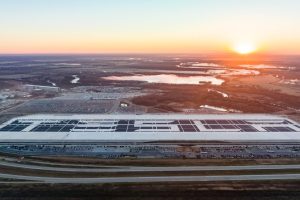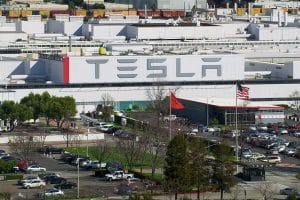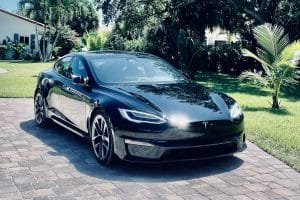- 🚗 Hyundai and Kia secured the second position in US electric vehicle (EV) sales after Tesla.
- 📊 The South Korean automakers outperformed Detroit-based legacy automakers Ford and General Motors in the US EV market.
- 📈 Hyundai and Kia, along with the Genesis brand, collectively hold the second-largest share in US EV sales.
- 🌐 Hyundai Motor Group, the parent company, ranks fourth in the overall US car market, trailing behind Toyota, Ford, and General Motors.
- 💪 Their success is attributed to a transformation in perception, with their EVs now considered as reliable and affordable alternatives to Tesla.
- 📉 Hyundai and Kia captured a 7.5% share in the US EV market, surpassing GM’s Chevrolet and Ford.
- 🏆 Tesla maintains a dominant position, holding a substantial 57.4% share in the US EV market.
- 💰 Notably, Hyundai Motor Group’s impressive share in the US EV market is achieved without its EVs qualifying for the $7,500 tax incentives.
- 📈 Sales data from January 2024 indicates robust figures, with Hyundai Motor Group reporting significant sales for Ioniq 5, Ionia 6, Kia EV6, and the newly released EV9.
- 🚙 Hyundai’s strategic focus on producing smaller and more affordable EVs, catering to consumer preferences, contributed to its rapid success in the US market.
In a remarkable turn of events, South Korean automakers Hyundai and Kia have carved out a prominent position in the competitive landscape of US electric vehicle (EV) sales. Securing the second spot after the industry leader Tesla, their success marks a pivotal moment in the automotive industry.
A Paradigm Shift: From Low-End to Leaders
Historically, Hyundai and Kia were perceived in the US as manufacturers of low-end and unreliable cars. However, a paradigm shift has occurred, especially in the realm of electric vehicles. Not only are their EVs now considered on par with their Tesla counterparts, but they also come with a more affordable price tag. This transformation in perception has led to an extraordinary surge in sales within a remarkably short span.
The Triumph Over Legacy Automakers
Hyundai and Kia, along with the luxury brand Genesis, collectively form Hyundai Motor Group. This automotive powerhouse has surpassed Detroit-based legacy giants Ford and General Motors in the US EV market, securing the second-largest share. This triumph speaks volumes about the changing dynamics of the automotive industry, where traditional giants are being challenged by innovative players.
Impressive Market Share: A Breakdown
The market share data reflects the significant impact Hyundai and Kia have made in the US EV market. Together, they command a substantial 7.5% share, outperforming GM’s Chevrolet at 5.9% and Ford at 5.5%. Despite these achievements, Tesla remains the undisputed leader, holding an imposing 57.4% share.
Hyundai Motor Group: A Global Player
While Hyundai Motor Group stands fourth in the overall US car market, trailing behind Toyota, Ford, and General Motors, its prowess in the EV segment is undeniable. The group’s strategic focus on electric vehicles has propelled it to the forefront of sustainable transportation initiatives.
Tax Incentives and Market Resilience
Notably, Hyundai Motor Group’s impressive market share in the US EV market is achieved without its electric vehicles qualifying for the $7,500 tax incentives, challenging the conventional belief that tax breaks are essential for success in the electric vehicle sector. This resilience underscores the strength of Hyundai and Kia’s offerings in meeting consumer demands.
Unveiling Sales Figures: A Closer Look
January 2024 sales data provides insights into Hyundai Motor Group’s stellar performance. With notable figures for Ioniq 5, Ionia 6, Kia EV6, and the recently launched EV9, the group has captured the attention of the US EV market. Inside EVs estimates further emphasize Kia’s success, particularly with the Niro EV, aligning with consumer preferences for affordable and reliable electric vehicles.
Strategic Focus on Affordability
One of the key factors contributing to Hyundai and Kia’s rapid success is their strategic focus on producing smaller and more affordable electric vehicles. In a market where consumers seek cost-effective EVs for everyday commuting without compromising range, Hyundai and Kia have positioned themselves as frontrunners.
Future Implications: The EV Transition
As Hyundai and Kia continue to disrupt the US EV market, their success story signifies a broader shift in consumer preferences and the automotive landscape. With a strategic emphasis on affordability and reliability, these automakers are paving the way for a more sustainable and accessible future of mobility.
In conclusion, Hyundai and Kia’s ascent in US EV sales is not merely a statistical triumph but a testament to the transformative potential of electric vehicles. As they challenge the dominance of traditional giants and redefine perceptions, their journey exemplifies the evolving narrative in the automotive industry.





